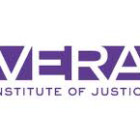
Collaboration Seeks to Divert Kids from Juvenile Justice System
|
A pilot program in Michigan provides police training on how to recognize and respond to mental health and substance abuse problems with youth.
Juvenile Justice Information Exchange (https://jjie.org/page/293/)

In late September, Torri was driving down the highway with her 11-year-old son Junior in the back seat when her phone started ringing.
It was the Hamilton County Sheriff’s deputy who worked at Junior’s middle school in Chattanooga, Tennessee. Deputy Arthur Richardson asked Torri where she was. She told him she was on the way to a family birthday dinner at LongHorn Steakhouse.
“He said, ‘Is Junior with you?’” Torri recalled.
Earlier that day, Junior had been accused by other students of making a threat against the school. When Torri had come to pick him up, she’d spoken with Richardson and with administrators, who’d told her he was allowed to return to class the next day. The principal had said she would carry out an investigation then. ProPublica and WPLN are using a nickname for Junior and not including Torri’s last name at the family’s request, to prevent him from being identifiable.
When Richardson called her in the car, Torri immediately felt uneasy. He didn’t say much before hanging up, and she thought about turning around to go home. But she kept driving. When they walked into the restaurant, Torri watched as Junior happily greeted his family.
Soon her phone rang again. It was the deputy. He said he was outside in the strip mall’s parking lot and needed to talk to Junior. Torri called Junior’s stepdad, Kevin Boyer, for extra support, putting him on speaker as she went outside to talk to Richardson. She left Junior with the family, wanting to protect her son for as long as she could ...

A pilot program in Michigan provides police training on how to recognize and respond to mental health and substance abuse problems with youth.

The lack of culturally relevant services and possible racial discrimination all pose hindrances to LGBTQ young people's healthy development and success.

The Vera Institute of Justice has announced that it will conduct a two-year study to examine the possible impact of increased family visits on juvenile residents in Indiana.

CHICAGO — Mariame Kaba is the founding director of Project NIA, a Chicago-based nonprofit that supports youth involved in the criminal justice system with a mission to eradicate the incarceration of minors. The organization teaches local schools how to implement peace circles and other dispute mediation measures. The Chicago Bureau spoke to Kaba about what the U.S. Education Department’s newly released guidelines for school discipline, which call for an end to punitive punishment, means for Chicago Public Schools. The Chicago Bureau: Project NIA has always worked in restorative justice in Chicago. Can you tell me more about what you have done in terms of reforming school discipline?

At age 18, Marilynn Winn went to prison in Georgia for theft. When she was released a year later, her first action was to look for a job. She soon learned she could only get hired if she lied on job applications. Today, a nationwide movement called “Ban the Box” seeks to address this problem. It’s an effort to get government and private employers to revamp job applications to remove the question "Have you ever been convicted of a crime?"

While it was a promising opinion by the Court, it was not the decision many of us hoped would end, once and for all, life imprisonment for juvenile offenders.

A just released Georgia Council on Criminal Justice Reform (GCCJR) report makes several recommendations to alter the state’s freshly rewritten code.

A veteran school police officer once told me, “If the only tool is a cop, than every problem becomes a crime.”